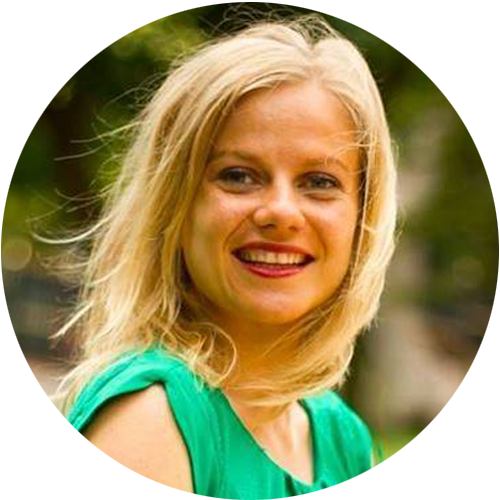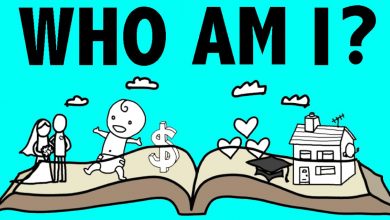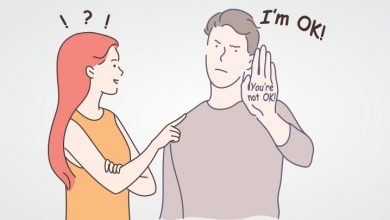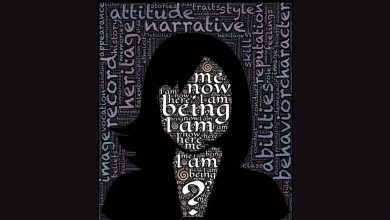The Universal Declaration of Human Rights
This article provides a full overview of the declaration of human rights as defined by the United Nations. The General Assembly of the United Nations adopted the Universal Declaration of Human Rights on the 10th of December 1948. This was the first time in history that countries agreed on a comprehensive statement of inalienable human rights, and this action was motivated by what had been experienced during the preceding world wars.
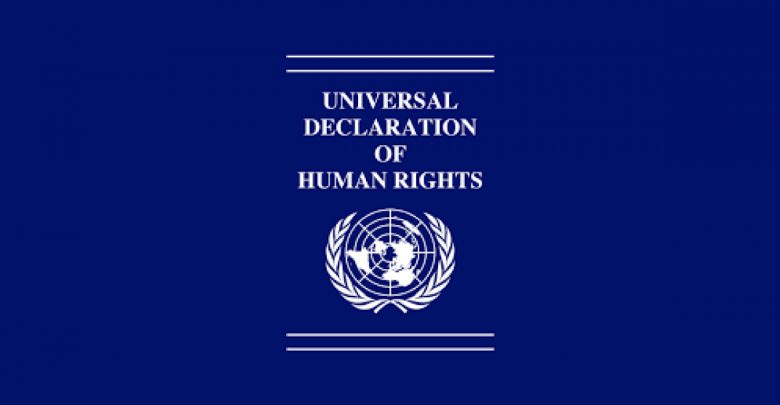
The Universal Declaration starts by recognizing that ‘the inherent dignity of all members of the human family is the foundation of freedom, justice and peace in the world’. It states that human rights are universal – in other words, they should apply to everyone, regardless of who they are or their geographical placement. The Universal Declaration also includes civil and political rights, like the right to life, liberty, free speech and privacy. It also addresses social, cultural and economic rights, like the right to health, education and social security.
Why did I choose this tool? I have chosen this tool as an easy way to review, check and reference human rights directly from the source so that we fully understand and can clarify what we mean when we are addressing human rights in any context.
How does this apply to being a trainer? Since being able to apply human rights principles is one of the competencies included in “Intercultural Competence” it is essential to be well versed in the declaration of human rights, regardless of whether the trainings we are giving are directly addressing human rights, if they are embedded within another context or whether they spontaneously come up throughout discussions in the training. Being well versed in human rights can also help us as trainers to predict any challenges we might have in relation to the application of human rights in diverse contexts.
Main content:
Universal Declaration of Human Rights
Preamble
Whereas recognition of the inherent dignity and of the equal and inalienable rights of all members of the human family is the foundation of freedom, justice and peace in the world,
Whereas disregard and contempt for human rights have resulted in barbarous acts which have outraged the conscience of mankind, and the advent of a world in which human beings shall enjoy the freedom of speech and belief and freedom from fear and want has been proclaimed as the highest aspiration of the common people,
Whereas it is essential if a man is not to be compelled to have recourse, as a last resort, to rebellion against tyranny and oppression, that human rights should be protected by the rule of law,
Whereas it is essential to promote the development of friendly relations between nations,
Whereas the peoples of the United Nations have in the Charter reaffirmed their faith in fundamental human rights, in the dignity and worth of the human person and in the equal rights of men and women and have determined to promote social progress and better standards of life in larger freedom,
Whereas the Member States have pledged themselves to achieve, in co-operation with the United Nations, the promotion of universal respect for and observance of human rights and fundamental freedoms,
Whereas a common understanding of these rights and freedoms is of the greatest importance for the full realization of this pledge,
Now, Therefore THE GENERAL ASSEMBLY proclaims THIS UNIVERSAL DECLARATION OF HUMAN RIGHTS as a common standard of achievement for all peoples and all nations, to the end that every individual and every organ of society, keeping this Declaration constantly in mind, shall strive by teaching and education to promote respect for these rights and freedoms and by progressive measures, national and international, to secure their universal and effective recognition and observance, both among the peoples of Member States themselves and among the peoples of territories under their jurisdiction.
| Article 1 | Right to Equality – All human beings are born free and equal in dignity and rights. They are endowed with reason and conscience and should act towards one another in a spirit of brotherhood. |
| Article 2 | Freedom from Discrimination – Everyone is entitled to all the rights and freedoms set forth in this Declaration, without distinction of any kind, such as race, color, sex, language, religion, political or another opinion, national or social origin, property, birth or another status. Furthermore, no distinction shall be made on the basis of the political, jurisdictional or international status of the country or territory to which a person belongs, whether it be independent, trust, non-self-governing or under any other limitation of sovereignty. |
| Article 3 | Right to Life, Liberty, Personal Security – Everyone has the right to life, liberty and security of person. |
| Article 4 | Freedom from Slavery – No one shall be held in slavery or servitude; slavery and the slave trade shall be prohibited in all their forms. |
| Article 5 | Freedom from Torture and Degrading Treatment – No one shall be subjected to torture or to cruel, inhuman or degrading treatment or punishment. |
| Article 6 | Right to Recognition as a Person before the Law – Everyone has the right to recognition everywhere as a person before the law. |
| Article 7 | Right to Equality before the Law – All are equal before the law and are entitled without any discrimination to equal protection of the law. All are entitled to equal protection against any discrimination in violation of this Declaration and against any incitement to such discrimination. |
| Article 8 | Right to Remedy by Competent Tribunal – Everyone has the right to an effective remedy by the competent national tribunals for acts violating the fundamental rights granted him by the constitution or by law. |
| Article 9 | Freedom from Arbitrary Arrest and Exile – No one shall be subjected to arbitrary arrest, detention or exile. |
| Article 10 | Right to Fair Public Hearing – Everyone is entitled in full equality to a fair and public hearing by an independent and impartial tribunal, in the determination of his rights and obligations and of any criminal charge against him. |
| Article 11 | Right to be Considered Innocent until Proven Guilty – (1) Everyone charged with a penal offence has the right to be presumed innocent until proved guilty according to the law in a public trial at which he has had all the guarantees necessary for his defence. (2) No one shall be held guilty of any penal offence on account of any act or omission which did not constitute a penal offence, under national or international law, at the time when it was committed. Nor shall a heavier penalty be imposed than the one that was applicable at the time the penal offence was committed. |
| Article 12 | Freedom from Interference with Privacy, Family, Home and Correspondence – No one shall be subjected to arbitrary interference with his privacy, family, home or correspondence, nor to attacks upon his honor and reputation. Everyone has the right to the protection of the law against such interference or attacks. |
| Article 13 | Right to Free Movement in and out of the Country – (1) Everyone has the right to freedom of movement and residence within the borders of each state. (2) Everyone has the right to leave any country, including his own, and to return to his country. |
| Article 14 | Right to Asylum in other Countries from Persecution – (1) Everyone has the right to seek and to enjoy in other countries asylum from persecution. (2) This right may not be invoked in the case of prosecutions genuinely arising from non-political crimes or from acts contrary to the purposes and principles of the United Nations. |
| Article 15 | Right to a Nationality and the Freedom to Change It – (1) Everyone has the right to a nationality. (2) No one shall be arbitrarily deprived of his nationality nor denied the right to change his nationality. |
| Article 16 | Right to Marriage and Family – (1) Men and women of full age, without any limitation due to race, nationality or religion, have the right to marry and to found a family. They are entitled to equal rights as to marriage, during marriage and at its dissolution.
(2) Marriage shall be entered into only with the free and full consent of the intending spouses. |
| Article 17 | Right to Own Property – (1) Everyone has the right to own property alone as well as in association with others. (2) No one shall be arbitrarily deprived of his property. |
| Article 18 | Freedom of Belief and Religion – Everyone has the right to freedom of thought, conscience and religion; this right includes freedom to change his religion or belief, and freedom, either alone or in community with others and in public or private, to manifest his religion or belief in teaching, practice, worship and observance. |
| Article 19 | Freedom of Opinion and Information – Everyone has the right to freedom of opinion and expression; this right includes freedom to hold opinions without interference and to seek, receive and impart information and ideas through any media and regardless of frontiers. |
| Article 20 | Right of Peaceful Assembly and Association – (1) Everyone has the right to freedom of peaceful assembly and association. (2) No one may be compelled to belong to an association. |
| Article 21 | Right to Participate in Government and in Free Elections – (1) Everyone has the right to take part in the government of his country, directly or through freely chosen representatives. (2) Everyone has the right to equal access to public service in his country. (3) The will of the people shall be the basis of the authority of government; this will shall be expressed in periodic and genuine elections which shall be by universal and equal suffrage and shall be held by secret vote or by equivalent free voting procedures. |
| Article 22 | Right to Social Security – Everyone, as a member of society, has the right to social security and is entitled to realization, through national effort and international co-operation and in accordance with the organization and resources of each State, of the economic, social and cultural rights indispensable for his dignity and the free development of his personality. |
| Article 23 | Right to Desirable Work and to Join Trade Unions – (1) Everyone has the right to work, to free choice of employment, to just and favourable conditions of work and to protection against unemployment. (2) Everyone, without any discrimination, has the right to equal pay for equal work. (3) Everyone who works has the right to just and favourable remuneration ensuring for himself and his family an existence worthy of human dignity, and supplemented, if necessary, by other means of social protection. (4) Everyone has the right to form and to join trade unions for the protection of his interests. |
| Article 24 | Right to Rest and Leisure – Everyone has the right to rest and leisure, including reasonable limitation of working hours and periodic holidays with pay. |
| Article 25 | Right to Adequate Living Standard – (1) Everyone has the right to a standard of living adequate for the health and well-being of himself and of his family, including food, clothing, housing and medical care and necessary social services, and the right to security in the event of unemployment, sickness, disability, widowhood, old age or other lack of livelihood in circumstances beyond his control. (2) Motherhood and childhood are entitled to special care and assistance. All children, whether born in or out of wedlock, shall enjoy the same social protection. |
| Article 26 | Right to Education – (1) Everyone has the right to education. Education shall be free, at least in the elementary and fundamental stages. Elementary education shall be compulsory. Technical and professional education shall be made generally available and higher education shall be equally accessible to all on the basis of merit. (2) Education shall be directed to the full development of the human personality and to the strengthening of respect for human rights and fundamental freedoms. It shall promote understanding, tolerance and friendship among all nations, racial or religious groups, and shall further the activities of the United Nations for the maintenance of peace. (3) Parents have a prior right to choose the kind of education that shall be given to their children. |
| Article 27 | Right to Participate in the Cultural Life of Community – (1) Everyone has the right freely to participate in the cultural life of the community, to enjoy the arts and to share in scientific advancement and its benefits. (2) Everyone has the right to the protection of the moral and material interests resulting from any scientific, literary or artistic production of which he is the author. |
| Article 28 | Right to a Social Order that Articulates this Document – Everyone is entitled to a social and international order in which the rights and freedoms set forth in this Declaration can be fully realized. |
| Article 29 | Community Duties Essential to Free and Full Development – (1) Everyone has duties to the community in which alone the free and full development of his personality is possible. (2) In the exercise of his rights and freedoms, everyone shall be subject only to such limitations as are determined by law solely for the purpose of securing due recognition and respect for the rights and freedoms of others and of meeting the just requirements of morality, public order and the general welfare in a democratic society. (3) These rights and freedoms may in no case be exercised contrary to the purposes and principles of the United Nations. |
| Article 30 | Freedom from State or Personal Interference in the above Rights – Nothing in this Declaration may be interpreted as implying for any State, group or person any right to engage in any activity or to perform any act aimed at the destruction of any of the rights and freedoms set forth herein. |
Reflection questions:
- How aware was I of these basic human rights before reading this declaration?
- How am I as a trainer applying these human rights in my work, and supporting others in doing the same?
- Are there any ways in which I may be responsible, consciously or unconsciously, for violating someone’s human rights (ex: the right to equality, freedom of belief and religion, right to rest and leisure, etc.)?
- If so, what can I do to change this?
- Do I observe that there are any violations of human rights in my immediate surroundings, in my community, or in my country?
- If so, what can I do to change this? (ex: providing information on human rights to people who may not be aware of them, speaking up when a human rights violation happens and I am present, helping someone who needs it to fight for their rights, etc.)
Exercises:
How to apply it in everyday life:
Challenge for you:
- Self-check: Are you living and acting according to the principles of human rights, both for yourself and for those that you have the ability to influence?
If you realize that in some arena you aren’t, then take the necessary steps to change that so that you can confidently answer yes to this question.
- Environment check: Are there any violations of human rights happening in my immediate surroundings, whether towards me or towards others?
If you see that in some arena there is a violation of human rights, even if it’s subtle, then determine that you will not stay silent and that you will do everything in your power to rectify it. Naturally it’s important to be aware when doing so of the human rights of everyone involved (ex: right to be considered innocent until proven guilty).
Closing: Although being cool-headed, open-minded and striving to understand everyone is definitely a valued quality in a trainer if there is physical or psychological harm being done to us or to another in our presence it calls for the ability to stand up and take measures to stop it. Since the UN will only intervene in very serious and widespread violations of human rights, it is up to us as individuals and as influencers in our own realms to play our part in ensuring that everyone’s basic human rights are met or at least not violated when we have the ability to do something about it.
